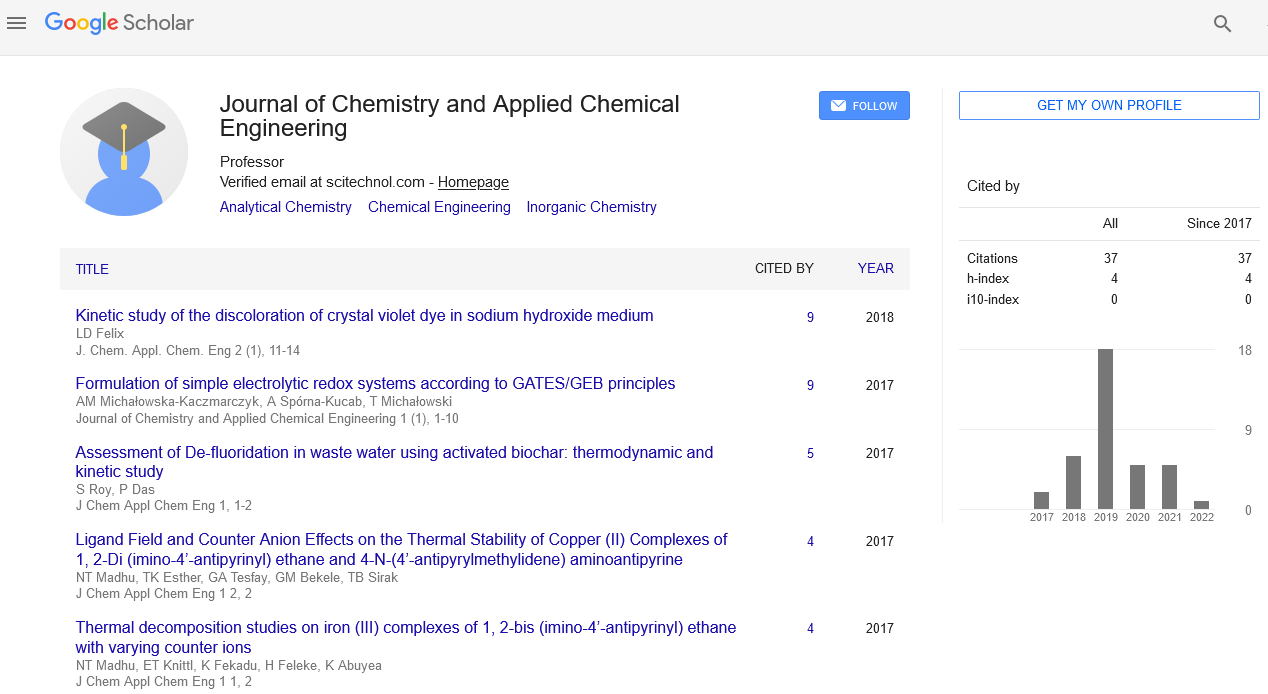Keratin-derived biopolymers for industrial wastewater treatment
Tariq Siddique
University of Alberta, Canada
: J Chem Appl Chem Eng
Abstract
Poultry feather keratin-derived biopolymers were tested for the removal of inorganic and organic contaminants from industrial wastewaters. The extraction of bitumen from surface mined oil sands in Alberta, Canada generates huge volumes of fluid fine tailings (FFT) that are deposited in tailings ponds. Initial settling of solids in FFT due to gravity expresses porewater (oil sands process-affected water; OSPW) to the surface of ponds that is recycled for bitumen extraction. Constituents of concern (metals and naphthenic acids) in OSPW pose a major challenge for oil sands operators to manage/reclaim tailings ponds effectively. Biopolymers removed simultaneously 68-100% of Pb, Ni, Co, Zn, SeIV, VV, CrVI from synthetic wastewater spiked at 30-50 μg L-1 each at pH 7. Similar metal removal rates were observed in OSPW at pH 8.2. Biopolymers showed a maximum adsorption capacity of 17 mg g-1 for VV and 15 mg g-1 for CrVI at ~20°C at pH 7. Biopolymers also displayed affinities for naphthenic acids (NAs) removing 50% of NAs when applied at 0.1 g 0.01L-1 of OSPW containing 255 ppm of NAs. Our research suggests that the developed biopolymers have great potential to remove various metals and other organic contaminants such as naphthenic acids from industrial wastewater.
Biography
Tariq Siddique has accomplished multiple academic achievements; Post-doctorate from Department of Biological Sciences, University of Alberta, Edmonton, Canada in 2008; Post-doctorate in Ecosystem Science and Management from University of Northern British Columbia, Prince George, Canada in 2004; Post-doctorate from Department of Environmental Sciences, University of California, Riverside, USA in 2004 and PhD from Department of Environmental Sciences, University of California, Riverside, USA in 2003 and University of Agriculture, Faisalabad, Pakistan in 2000).
E-mail: tariqs@ualberta.ca
 Spanish
Spanish  Chinese
Chinese  Russian
Russian  German
German  French
French  Japanese
Japanese  Portuguese
Portuguese  Hindi
Hindi 